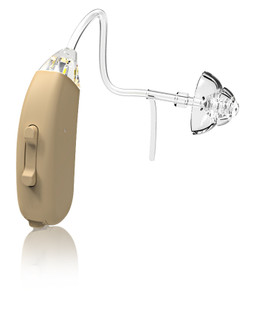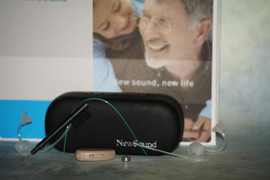Minimizing the "Tinny" Effect in Your Hearing Aids
Posted by DR Paul on Jun 28, 2023
Hearing aids are a lifesaver for those with hearing loss, but they can come with their own set of challenges. One common issue that hearing aid users may experience is the "tinny" effect. This is when sound coming through the hearing aids sounds distorted or metallic. Not only is it annoying, but it can also make it difficult to understand speech or music. In this blog post, we'll discuss the causes of the tinny effect and offer tips for minimizing it.
Causes of the Tinny Effect
The tinny effect can be caused by a variety of factors, including:
Poorly fitting hearing aids: If your hearing aids don't fit well, sound can leak out and cause distortion.
Low-quality hearing aids: Cheaper hearing aids may not be designed to provide clear, natural sound.
Feedback: Feedback occurs when sound from your hearing aids is picked up by the microphone and amplified again, creating a loop that can cause distortion.
Blockages: Earwax or other debris can block the sound pathway, leading to distorted sound.
Incorrect programming: If your hearing aids are not programmed correctly for your individual hearing needs, it may cause distortion.
Tips for Minimizing the Tinny Effect
Here are some tips that may help to minimize the tinny effect:
Get properly fitted hearing aids: Work with your audiologist to ensure your hearing aids fit well and are adjusted correctly.
Choose high-quality hearing aids: While they may be more expensive, high-quality hearing aids often provide clearer, more natural sound.
Use feedback suppression technology: Many modern hearing aids have feedback suppression technology to minimize or prevent distortion.
Keep your hearing aids clean: Regularly clean your hearing aids to remove earwax or debris that may be causing blockages.
Have your hearing aids reprogrammed: If you're still experiencing distortion, work with your audiologist to adjust your hearing aid programming.
Other Considerations
In addition to the above tips, there are a few other considerations that may help to minimize the tinny effect:
Use the right accessories: Some hearing aids may come with accessories that provide a more natural sound, such as a streamer or remote microphone.
Consider assistive listening devices: If you still have difficulty hearing, even with your hearing aids, an assistive listening device may help. These devices work with your hearing aids to provide clearer sound in challenging listening environments.
Be patient: Adjusting to new hearing aids can take time, and it may take some trial and error to find the right solution for you.
Conclusion:
The "tinny" effect can be frustrating for hearing aid users, but there are steps you can take to minimize it. By working with your audiologist and trying some of the tips outlined in this blog post, you can enjoy clearer, more natural sound through your hearing aids. Remember, it may take some time and patience to find the right solution for you, but with persistence, you can find the perfect hearing aid fit for your needs.









